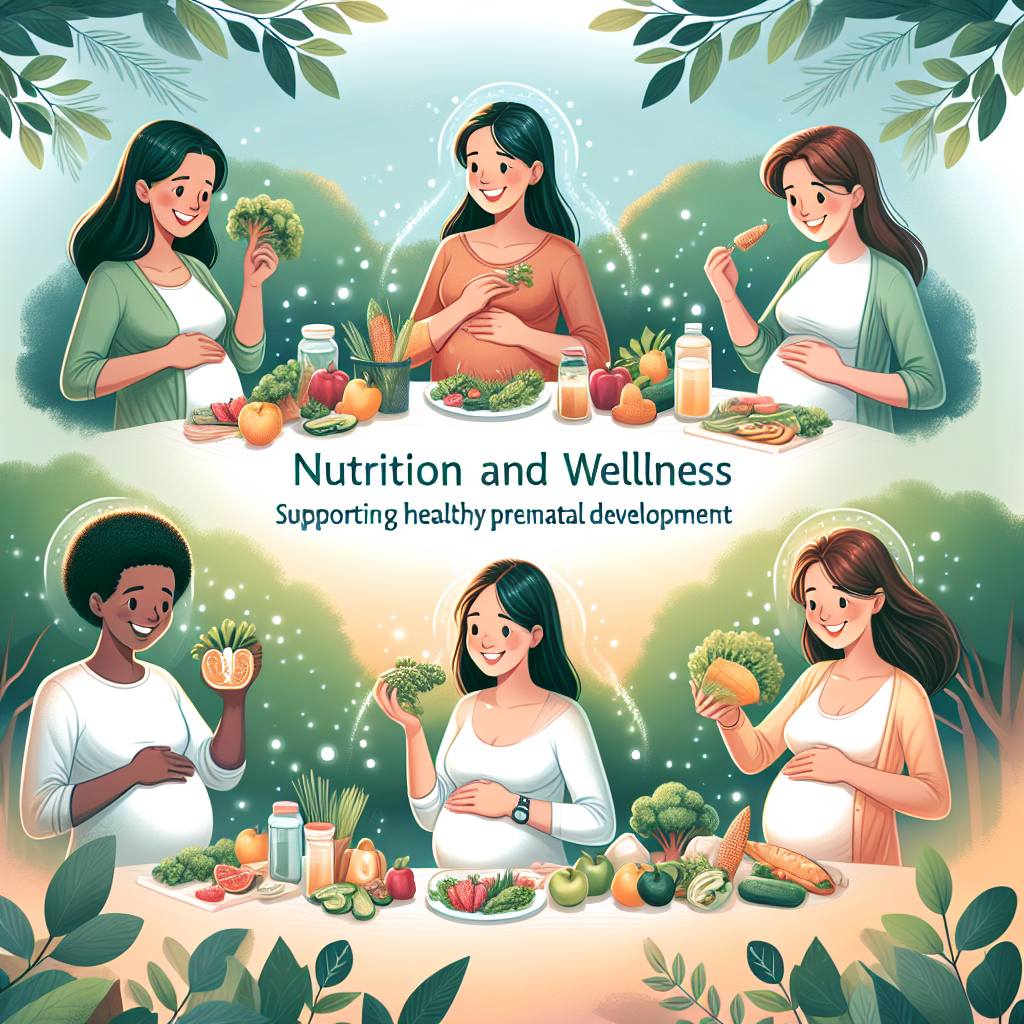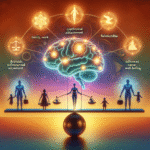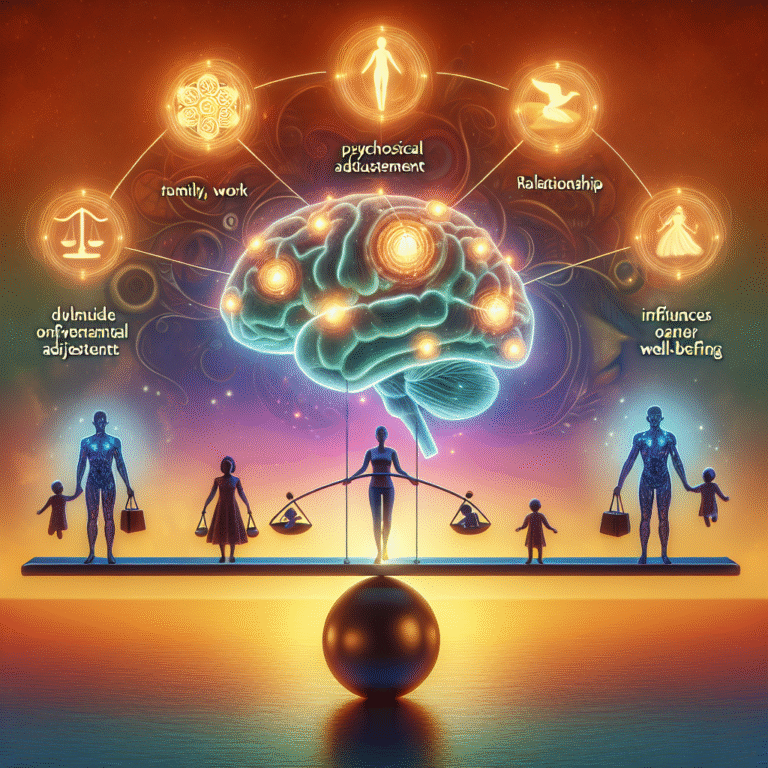
Introduction
In the journey of bringing a new life into the world, the significance of nutrition and wellness cannot be overstated. The foundation for a healthy future begins even before birth, as nutritional choices made during pregnancy play a crucial role in prenatal development. Nutrition and wellness: supporting healthy prenatal development is not just a catchy phrase; it encompasses the diet, lifestyle, and holistic health approaches that promote the well-being of both mother and child during this unprecedented time of change.
What Makes Prenatal Nutrition So Important?
The nutritional choices of a pregnant woman can significantly impact fetal development. This period is marked by rapid growth and organ development, requiring essential nutrients to support these processes. A balanced diet rich in vitamins, minerals, and other vital components can not only help the developing fetus but also enhance the mother’s health, reducing the risks of complications such as gestational diabetes and preterm birth.
Key Nutrients for Prenatal Development
1. Folate
Folate is a B-vitamin critical for DNA synthesis and repair. Adequate folate intake before and during pregnancy can significantly reduce the risk of neural tube defects in the fetus. The CDC recommends a daily intake of 400 to 800 micrograms of folic acid for women planning to conceive, continuing through the first trimester.
Case Study: The Impact of Folate on Neural Tube Defects
A study published in the New England Journal of Medicine examined the effects of folate supplementation among women who had previously experienced pregnancies affected by neural tube defects. The results showed a remarkable 70% reduction in the risk of recurrence among those who adhered to the supplementation guidelines.
| Folate Sources | Folate Content (μg/100g) |
|---|---|
| Spinach | 194 |
| Lentils | 181 |
| Asparagus | 149 |
| Fortified cereals | 100–400 |
2. Omega-3 Fatty Acids
Omega-3 fatty acids are crucial for brain development and can positively affect the child’s cognitive and visual development. Sources like fish, walnuts, and flaxseeds are abundant in these essential fats.
Analysis
A 2018 cohort study indicated that mothers who consumed higher amounts of omega-3 fatty acids during pregnancy had children with improved cognitive outcomes, signifying the importance of this nutrient for prenatal wellness.
3. Iron
Iron is vital for oxygen transport and is crucial for the mother’s increased blood volume during pregnancy. Anemia in pregnancy can lead to fatigue and other complications, making iron-rich foods an important component of prenatal nutrition.
4. Calcium and Vitamin D
Calcium is needed for developing fetal bones and teeth, while vitamin D helps with calcium absorption. Together, they contribute to a healthy skeletal system for the growing baby.
| Nutrient | Recommended Daily Allowance (RDA) |
|---|---|
| Folate | 400–800 μg |
| Omega-3 | 200–300 mg |
| Iron | 27 mg |
| Calcium | 1,000 mg |
| Vitamin D | 600 IU |
Holistic Approaches to Wellness
The Role of Mental Health
Nutrition and wellness are interconnected with mental well-being. Pregnancy can present various emotional challenges, from anxiety to depression. A balanced diet can positively influence mood, thanks to the nutrients that aid in neurotransmitter function.
Case Study: Nutritional Psychiatry
Research conducted by the Australian and New Zealand Journal of Psychiatry demonstrated that pregnant women who participated in a dietary intervention focusing on whole foods reported improved mood outcomes and lower levels of depression.
Regular Physical Activity
Maintaining physical activity during pregnancy supports overall wellness. Light to moderate exercise can improve energy levels, enhance mood, and prepare the body for labor.
Insights
Activities like walking, swimming, and prenatal yoga are excellent avenues for pregnant women. A study in Journal of Midwifery & Women’s Health indicated that women who engaged in regular prenatal exercise had shorter labor durations.
Challenges in Practicing Nutrition and Wellness
Many expectant mothers face barriers that prevent them from following optimal dietary guidelines:
- Morning Sickness: This common ailment can deter proper nutrition strategies.
- Cravings: These can lead to imbalanced eating patterns.
- Cultural Influences: Traditions can sometimes contradict nutritional advice.
Strategies for Overcoming Barriers
- Meal Planning: Preparing meals ahead can minimize the impact of morning sickness.
- Healthy Snacking: Offering nutritious alternatives can satisfy cravings.
- Nutrition Education: Understanding the nutrients needed can help navigate cultural practices while still emphasizing wellness.
Conclusion
Nutrition and wellness: supporting healthy prenatal development is critical for both mother and child. Focusing on essential nutrients, maintaining mental health, and engaging in physical activity create a holistic approach to nurturing life. The journey of pregnancy is an incredible time, filled with challenges and rewards. By prioritizing nutritional choices, expectant mothers can pave the way for healthier outcomes and resilient futures for their children.
Actionable Insights
- Start Early: Begin taking prenatal vitamins as soon as you decide to conceive.
- Balanced Diet: Always include a variety of foods to ensure comprehensive nutrient intake.
- Consult Professionals: Seek tailored advice from healthcare providers or nutritionists specialized in prenatal care.
FAQs
1. What is the role of prenatal vitamins?
Prenatal vitamins help fill nutritional gaps in an expectant mother’s diet, providing essential nutrients like folate and iron to support prenatal development.
2. Can I get enough nutrients from food alone?
While a balanced diet can provide much of the necessary nutrition, many healthcare professionals recommend prenatal vitamins to ensure adequate nutrient intake.
3. How can I manage morning sickness while ensuring proper nutrition?
Small, frequent meals that are bland and high in carbohydrates can help. Foods like crackers, toast, and yogurt can be more palatable during bouts of nausea.
4. What foods should I avoid during pregnancy?
Raw or undercooked meats, unpasteurized dairy products, and certain fish high in mercury are generally advised against during pregnancy.
5. How can stress impact prenatal wellness?
High levels of stress can negatively affect both maternal health and fetal development. Practicing relaxation techniques and maintaining a support system can mitigate these effects.
Final Thoughts
The gift of life is profound, and understanding nutrition and wellness: supporting healthy prenatal development will empower expectant mothers to take informed steps towards fostering a thriving environment for their babies. Your choices today lay the groundwork for a healthier tomorrow.















